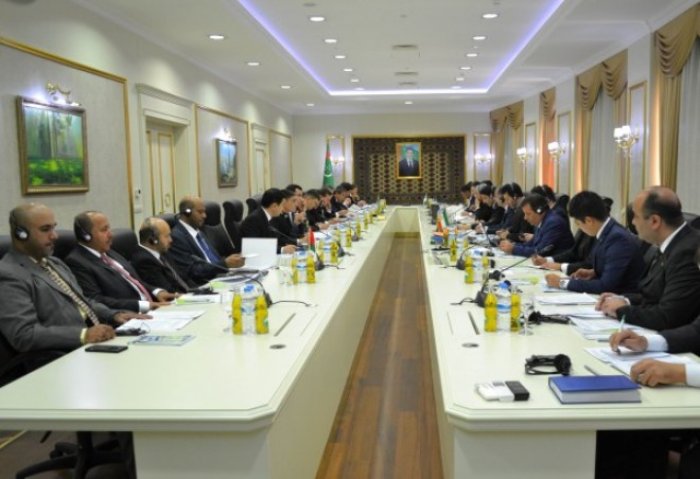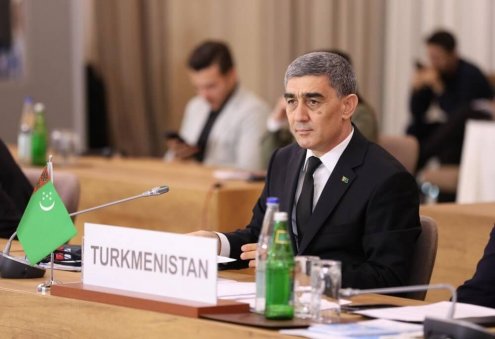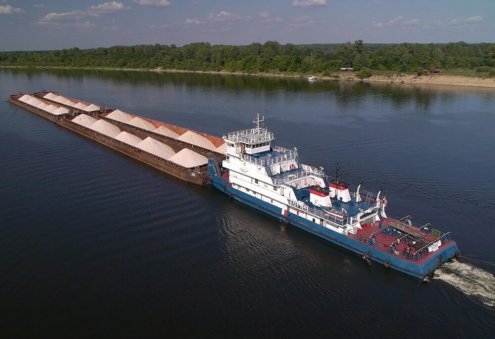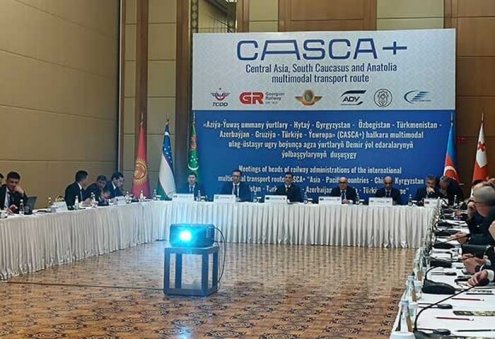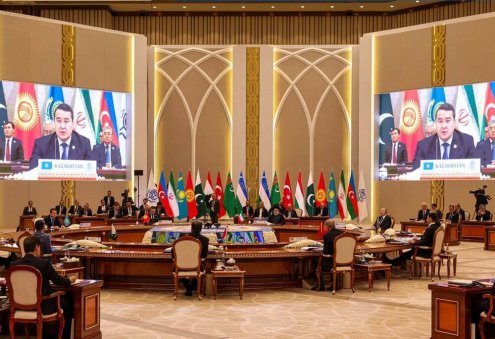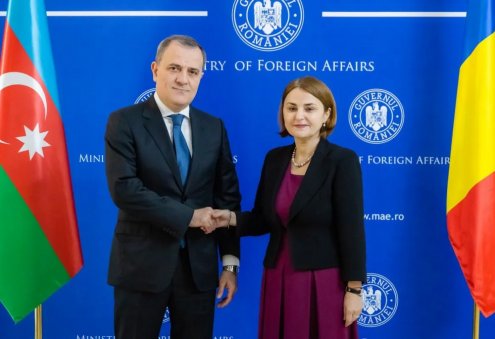The second meeting of the Working Committee of the Agreement on the Establishment of an International Transport and Transit Corridors between the Governments of the Islamic Republic of Iran, the Sultanate of Oman, Turkmenistan and the Republic of Uzbekistan (Ashgabat Agreement) kicked off at the Ministry of Industry and Communications of Turkmenistan on Wednesday.
According to the Turkmen Foreign Ministry, the leading specialists of the respective ministries and agencies of the member states of Ashgabat Agreement attended the meeting.
In the first day of the meeting, the participants discussed the execution of the agreements attained in regard to the routes of the given transport-transit corridors.
The parties exchanged information pertaining to the legislation of each stakeholder, including the coordination of actions at the check points and simplification of customs procedures. The specialists also considered a number of issues of technical scope aimed at the effective implementation of the Agreement.
The participants have also underlined the necessity of elevating the efficiency and role of the logistical centers of the member states of the Agreement and stated the need of signing the treaties on cooperation between the logistical centers of all the countries involved.
The Ashgabat agreement is a multimodal transport agreement between the governments of Kazakhstan, Uzbekistan, Turkmenistan, Iran, Pakistan, India and Oman for creating an international transport and transit corridor facilitating transportation of goods between Central Asia and the Persian Gulf. The agreement came into force in April 2016. Ashgabat in Turkmenistan is the depository state for the agreement.
The work of the second session of the Working Committee continued on November 14.

